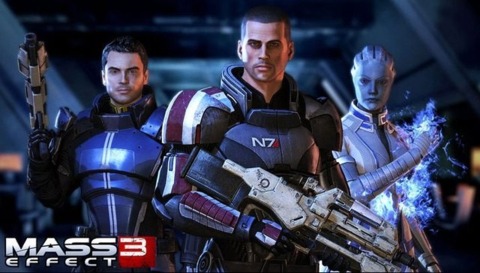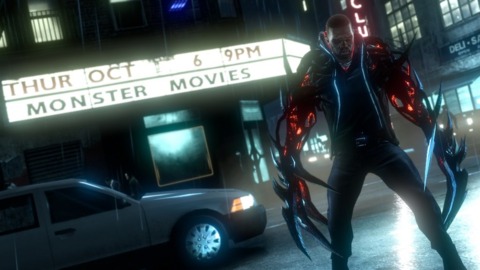The Right Way to Lie to Gamers
Publishers habitually pull the wool over customers' eyes in marketing their games, but they can only do it with our cooperation.
As I was writing up a story on Prototype 2's Blackwatch Collectors Edition last week, it struck me what an awful package Activision had put together "for the fans." The $80 premium bundle includes the game (along with the Radnet downloadable content all preorders will receive), a soundtrack CD, an art book, a digital comic, the first paid DLC pack (when it's released), and a 20-percent-off voucher for the Prototype Merchandise Store.
So for an extra $20 beyond the standard price of the game, the fans Activision touts so highly will receive a CD and book of the sort Atlus often gives away for free with its games, a comic book that serves as little more than a commercial for the game they've already purchased, access to a DLC pack that won't come until a month later (keeping them from feeding their copy into the used game mill), and a coupon that will let them spend even more money on Prototype-branded stuff. It's like "for the fans" has an unspoken "Because we can gouge them for more money" right after it.
Given the steaming piles of publisher propaganda I sift through on a daily basis, it took me a little time to figure out why this PR in particular irked me so much. Eventually, I found an explanation already exists in a concept commonly used when talking about games.
"Suspension of disbelief" is an important concept for many games. It's what makes them work, even if they don't always make sense. As an audience, there are things we must ignore in order to get wrapped up in some game experiences.
We must accept that Mario has multiple lives and can fall into a pit of lava only to magically reappear a few feet away in perfect health. That Greg Jennings can outrun an entire team of NFL players for 99 yards on a broken leg. That the jovial Nathan Drake has killed more people than your average epidemic. That a phoenix down will resurrect anybody in any situation, so long as you didn't die in a CG-rendered cutscene. That the characters in Heavy Rain are intelligent enough to not only blink but also breathe and feed themselves. All of these things are clearly absurd, but if we can somehow ignore them while we play, there is enjoyment to be found in all of those games.
Interestingly, this doesn't stop when we put the controller down. Our willing suspension of disbelief is essential not just for interacting with the games themselves, but also for the industry's marketing and hype cycle.
In order to get excited about games, we need to believe the publishers when they tell us this year's lineup is their best ever. That Mass Effect's multiplayer mode and transition from role-playing game to shooter happened for creative reasons instead of financial ones. That Dead Rising 2: Off the Record was a clever recontextualization and not a quick-and-dirty double dip. That there's a good reason to bring back X-COM and Syndicate as first-person shooters. That Madden 12 fixes everything that was wrong with Madden 11 and is itself perfect (at least until Madden 13 comes out to fix all that's broken in Madden 12).

Notice how there's no shortage of people out there who consider those games I just mentioned among the best in their genre (Syndicate and X-COM aside, because the masses haven't played them yet). There's a social contract, a gentlemen's agreement between gamers and publishers, that states roughly that the better we feel your games are, the more we'll suspend disbelief and preorder collector's bundles and talk about the game on message boards, Facebook, Twitter, and so forth.
As gamers, we've proven more than willing to hold up our end of the bargain. We get cautiously optimistic whenever Sega says it's taking Sonic back to his roots. We get excited for Capcom's latest fighting game, even though it will likely feel stripped down at launch and rendered obsolete by a super-duper version with a few more characters within a year's time. We buy systems at launch, fully knowing that often means hardware failures, pitiful software lineups, and an inevitable redesign or price drop once the kinks have been worked out. We preorder games that are being shipped by the millions on the off chance that somehow they well sell out (or to avoid a bizarre guilt trip from a GameStop employee).
Clearly, we're pretty good at suspending disbelief. The publishers generally do a pretty good job holding up their end of the bargain as well. We rarely see a terrible game hyped to high heaven these days (see: Daikatana, Atari 2600 Pac-Man), and publisher hype is usually restrained to sentiments that it's possible some sane person somewhere would hold.
But in the case of Prototype 2, Activision crossed the line (subjective though it may be). The publisher is saying the Blackwatch edition of the game was made "for the fans," and while fans may enjoy what comes in the package, it's difficult to think the package is ultimately worth the extra money being charged. It's still more galling when you notice the publisher pads out the list of advertised goodies with the DLC all Prototype 2 preorders receive and a coupon with the only purpose of giving fans incentive to spend still more money on the game.
The curious thing about this social contract is that I take offense to it being breached. I apparently don't mind being lied to, so long as it's done "the right way." When publishers push the marketing hype beyond the realm of the plausible, I get riled up because they aren't treating me with the basic respect to which a customer is entitled. So go ahead and keep lying to us, publishers. But at least have the decency to pretend that there would be consequences if we caught you doing it.
Got a news tip or want to contact us directly? Email news@gamespot.com

Join the conversation